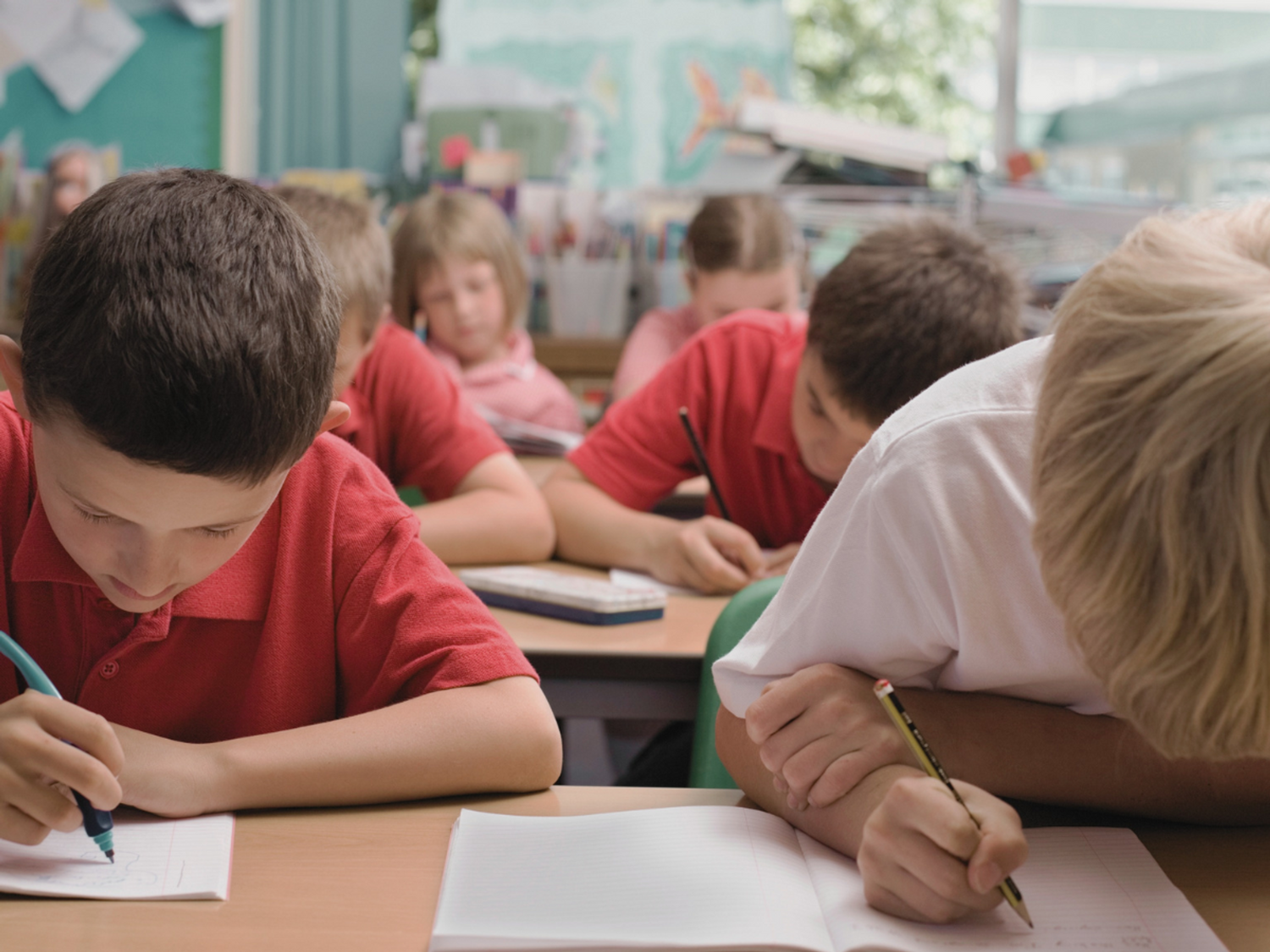What is pupil premium funding?
Introduced in 2011, Pupil Premium is an amount of money given to schools in England each year by the government to improve the attainment of disadvantaged pupils. The grant is given to schools based on the number of eligible children. Eligibility is decided by whether children receive or have received free school meals (FSM), children being looked after in care or foster situations and pupils whose parents are serving in the armed forces.
Schools’ role in closing the attainment gap
Schools can decide how to spend the Pupil Premium money they are allocated. They are in the best position to make this judgement as they know their students best.
Often schools spend pupil premium funds on:
- Extra teaching assistants to work in a class
- Extra one-to-one or small group support within a class
- Providing catch-up sessions before or after school for pupils who need to plug gaps in maths or literacy
- Facilitating targeted interventions to plug specific gaps in learning
These are just a few of the ways schools can help to close the attainment gap through effective spending of the Pupil Premium fund.
What is meant by "disadvantaged pupils"?
According to the Department for Education, disadvantaged pupils are defined as ‘those who receive Free School Meals or are Looked After children.’
Disadvantaged pupils are often students from low-income families who may lack social and cultural capital, affecting their progress in school. Another characteristic can be a lack of control over decisions that affect life outcomes.
Learners from this background may find learning more challenging due to poor language and communication skills, low self-confidence and issues with school attendance and punctuality.
Pupil Premium aims to benefit these students directly.
How can a disadvantaged background affect learners’ literacy skills?
Coming from a disadvantaged background can mean certain situations are prevalent at home. This could be low income, poor or temporary housing, poor health and lower parental education levels than families not deemed disadvantaged.
Low income can make it challenging for families to support child development and learning. There may not be enough money for toys and books that promote cognitive stimulation, and if children aren’t exposed to a rich vocabulary of the kind found in high-quality children’s literature, then they are unlikely to produce it in their own writing.
Before children write, they need to be able to speak the language. If their parental education levels are low, they may not be having ambitious conversations at home, where good grammar and vocabulary are modelled.
All of these reasons may contribute towards children struggling with their literacy. In addition to this, as they are already behind their peers who do not face the same disadvantages these children may encounter psychological effects of this attainment gap, including feelings of low self-esteem and a lack of motivation.
How can primary schools use their pupil premium funding to improve literacy amongst disadvantaged students?
According to the Education Endowment Fund (EEF), when used with care and commitment, the Pupil Premium is the most dependable way to close the attainment gap. School leaders can decide what to spend Pupil Premium funding on to ensure it benefits their disadvantaged students. Below, we have outlined some ways it can be used to improve literacy.
Early intervention is key to building literacy skills for the future
The earlier in a child’s life that intervention takes place, the better their chances of building literacy skills for the future.
Delays in language development and communication can often be early indicators of developmental problems in young children. Identifying these issues early means families can seek interventions as soon as possible. The earlier the diagnosis, the earlier strategies to help can be put into place which increases the chances of treating or improving the issue.
When communication and language difficulties are treated early on, this may prevent later potential problems with not only learning in general but also behaviour, reading and social interaction.
Therefore, whilst there is a lot of evidence which shows that effective interventions can benefit children at any point in their lives, introducing these interventions as early as possible, and especially at primary school, can achieve the best impact on the attainment gap.
Reading interventions
Spending Pupil Premium on reading interventions is viewed as low cost and high impact as reading comprehension skills are vital across all subjects. Through these interventions, disadvantaged pupils can work on skills such as inferring meaning, summarising key points and interpreting other ways of presenting information such as graphics.
They can be carried out with the class teacher, a teaching assistant or even an older learner in some cases. Computer-based interventions are also used.
Approaches designed to improve reading comprehension have been shown to lead to as much as six months’ progress in students.
Reading Recovery
Reading Recovery is a school-based programme for children aged five and six with difficulties in reading that can be supported by the Pupil Premium funding. It is a targeted intervention for learners with the lowest literacy attainment scores and who lack skills, knowledge and experience, the results of this being that they cannot keep up with group or class teaching.
The programme involves daily 30-minute sessions of one-to-one lessons with a specially trained teacher, and each lesson is adapted to meet the specific needs of the child.
Studies have shown that over 85% of children who have taken part in the Reading Recovery programme developed fluency and stamina, allowing them to read longer texts. It also helped them to widen their vocabulary and develop their ability to write beyond simple sentences.
This intervention programme reduces the need for costly interventions later in a child’s school life. Furthermore, Reading Recovery has been proven to reduce the attainment gap to less than 5% in reading and writing between the children who undertook the programme (and who are economically disadvantaged) and their peers.
Social and emotional interventions
With Pupil Premium funding, social and emotional interventions can be implemented. These may take the form of universal well-being programmes in the classroom, specialised programmes focusing on specific students or whole-school approaches.
Zins et al., 2004 demonstrated that social and emotional learning (SEL) plays an important role in influencing non-academic outcomes, but also has a critical role in improving children's academic performance and lifelong learning.
Targeted support
Research indicates that interventions yield the most successful outcomes when; they are integrated into daily practice and school culture, they seek to engage all staff, they reinforce skills outside of the classroom such as in hallways and playgrounds, they support parental engagement, and they coordinate work with outside agencies (Barry et al. 2017).
Targeted support should provide engaging, accessible and age-appropriate learning material, helping learners to build their confidence and self-esteem.
In order to provide targeted support effectively, teachers and support staff must factor in the time investment of individualised instruction into their bandwidth. This may require teachers to reprioritise their curriculum planning to allow for the flexibility of individualised instruction - for example, implementing the mastery approach in the classroom, using pre-teaching or sequencing tools, and using educational technology to differentiate teaching.
Mastery approaches ensure disadvantaged students aren't left behind
The mastery learning approach aims to ensure that pupils have mastered key concepts before moving on. It involves breaking down subject matter into units with very clear objectives. These objectives are pursued until they have been achieved.
Read more about the mastery approach here.
The mastery approach can help close the attainment gap as pupils who don’t achieve the required level of success (measured through testing) get additional support. This may be through small group work, one-to-one tuition, peer support or targeted homework.
High-quality teacher training & assistance
The EEF recommends that schools particularly focus their Pupil Premium on supporting high-quality teaching which could involve staff professional development, training and support for early career teachers, along with recruitment and retention.
Making sure each class in a school has an effective teacher and making sure that these teachers receive support to develop and improve should be high on the priority list for pupil premium spending.
Phonics support
Phonics is used to teach pupils reading and writing; its aim is to teach pupils the relationship between sound patterns (‘phonemes’) and the written spelling patterns (‘graphemes’) which represent them.
Facilitating children to embed solid phonics knowledge has been shown to lead to an additional four months’ progress for these pupils. This strategy is particularly beneficial for four to six-year-olds.
Some popular phonics programmes include Read Write Inc, Little Wandle Letters and Sounds and Monster Phonics.
Writing interventions
Writing interventions take place in small groups or one-to-one situations with the class teacher, another specially trained practitioner or a teaching assistant.
A few writing intervention programmes include Talk for Writing, Grammar for Writing and Improving Writing Quality.
Developed by Pie Corbett, Talk for Writing is effective because it is based on the principles of how people learn. When the approach is applied systematically, schools have found their pupils double their rate of success initially. It increases attainment, engagement and enjoyment.
Both Grammar for Writing and Improving Writing Quality were found to be effective by the EEF.
Implementing Bedrock using Pupil Premium fund allocation
Explicit literacy instruction has been found to overcome differences and close gaps formed by socioeconomic background. It forms the key to creating a classroom where all learners have equal opportunity to succeed. However, providing targeted, individualised intervention for Pupil Premium learners, both to stretch high-achieving learners and to support struggling writers and readers, is time consuming.
Bedrock Learning’s core curriculum provides consistent, sustainable literacy instruction while saving teachers time. Vocabulary and grammar are taught using bespoke fiction and nonfiction texts, human narration, mastery questions and teaching videos, keeping learners engaged while they learn. Learners are motivated through Bedrock’s points system, encouraging learners to achieve targets and earn prizes. All learning is aligned with the UK National Curriculum, supporting learners to master the literacy tools they need for their KS2 SATs.
Learning is individualised on Bedrock through an Alpha test - a low-stakes formative assessment taken at the start of a learner’s journey, helping to assign them to the optimal reading material for them.
Students can log into Bedrock from any computer, tablet or phone - even their games console. This helps to make Bedrock an accessible solution in a low-income household where technology may not be a guarantee.
However, Bedrock isn’t just an intervention. While Bedrock’s lower blocks and foundational grammar skills can support struggling readers and writers, Bedrock’s advanced content stretches and challenges high-achieving learners. Students are not held back due to prior attainment or circumstance - every learner on Bedrock has the opportunity to thrive.



